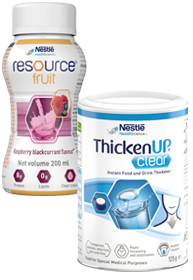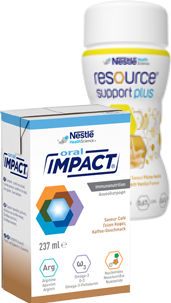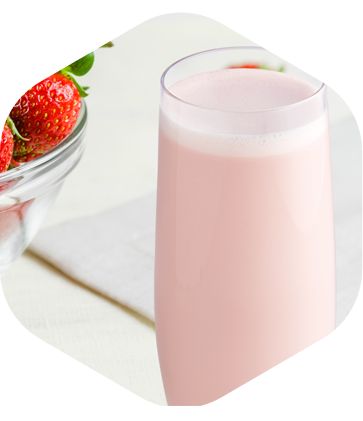Vitamins and Minerals That Play a Major Role in Cancer Treatment
Ask your doctor or nutritionist about the need of taking vitamin and mineral supplements. Food supplements should not be used as a substitute for a varied diet.

Many vitamins and minerals are important for the health of people going through treatment, working in different three ways: promoting a general sense of well-being, e.g., making the patient feel less tired, boosting the immune system, and accelerating the healing process after surgeries. Learn more about these nutrients, how they can help and where to find them.
Important vitamins and minerals for people with cancer and where to find them
Vitamin A - Beneficial for skin, tissue and mucus membrane health, and, as a result, healing. Improves the response of the immune system. The recommended daily intake for adults is:19–50 years old, male 900 mcg RAE (retinol activity equivalent), Female 700 mcg RAE, Pregnancy 770 mcg RAE, Lactation 1,300 mcg RAE; 51+ years, Male 900 mcg RAE, Female 700 mcg RAE. 1
Main vitamin A sources:
- Beef liver;
- Raw carrots;
- Mangos;
- Pumpkin;
- Melons;
- Boiled eggs;
- Sautéed spinach.
Vitamin B6 - Vital for the production of antibodies, and protein, fat and carbohydrate metabolism – which contributes to the body’s nourishment – as well as helping the healing process after surgical procedures. The recommended daily intake is for adults is: 19–50 years, Male 1.3 mg, Female. 1.3 mg, Pregnancy 1.9 mg, Lactation 2.0 mg; 51+ years: Male 1.7 mg, Female 1.5 mg.2
Main vitamin B6 sources:
- Beef liver;
- Bananas;
- Poached salmon;
- Chicken breast stew;
- Roasted potatoes;
- Plums;
- Hazelnuts;
- Cashews;
- Beef stew.
Vitamin B12 - Closely related to folic acid, takes part on the production of antibodies and on the reproduction of cells that make up the immune system, helping the body to protect itself against infections. The recommended daily intake in adults is: 19+ years, Male 2.4 mcg, Female 2.4 mcg, Prgnanacy 2.6 mcg, Lactation 2.8 mcg.3
Main vitamin B12 sources:
- Sautéed beef liver;
- Sautéed chicken liver;
- Seafood;
- Milk;
- Yogurt;
- Cheese;
- Eggs.
Vitamin C - Aids the healing process after surgeries and helps boosting the immune system. The recommended daily intake for adults is: 19+ years, male 90 mg, Female 75 mg, Pregnancy 85 mg Lactation 120 mg. Individuals who smoke require 35 mg/day more vitamin C than nonsmokers.3
Main vitamin C sources:
- Fresh orange juice;
- Papayas;
- Strawberries;
- Kiwifruit;
- Tomato juice;
- Mangos;
- Broccoli;
- Kale.
Vitamin D - Crucial for the immune system functioning, as well as promoting a sense of well-being and invigoration. Vitamin D promotes calcium absorption in the gut and maintains adequate serum calcium and phosphate concentrations to enable normal bone mineralization. The recommended daily intake in adults is: 19–50 years, male 15 mcg (600 IU), Female 15 mcg (600 IU), Pregnancy 15 mcg (600 IU) , lactatition 15 mcg (600 IU); 51–70 years, Male 15 mcg (600 IU), Female 15 mcg (600 IU); >70 years, Male 20 mcg (800 IU), female 20 mcg (800 IU).4
Main vitamin D sources:
- Salmon oil;
- Oysters;
- Fish;
- Fortified milk;
- Boiled eggs.
Vitamin E - Boosts the immune system's potential and anti-inflammatory properties. For people with respiratory issues, it reduces side effects linked to the immune system. The recommended daily intake for adults is: Male 15 mg, Female 15 mg, Pregnancy 15 mg, Lactation 19 mg.3
Main vitamin E sources:
- Sunflower seeds;
- Hazelnuts;
- Sunflower oil;
- Peanuts;
- Almond oil;
- Brazil nuts;
- Almonds.
Folic Acid - Takes part on the production of antibodies and cells that are part of the immune system and aids the healing process. The recommended daily dose intake is: 19+ years, Male 400 mcg, Female 400 mcg ,Pregnancy 600 mcg , lactation 500 mcg.2
Main folic acid sources:
- Chicken liver;
- Beef liver;
- Lentils;
- Okra;
- Black beans;
- Sautéed spinach;
- Edamame (green soy).
Zinc - Takes part on the immune system cells’ growth, as well as protecting cells against oxidative damage. It’s also beneficial for skin and membrane health, playing an important part on the healing process after surgery. Zinc also supports normal growth and development during pregnancy, childhood, and adolescence and is required for proper sense of taste and smell.5 The recommended daily intake in adults is: 19+ years, Male 11 mg, Female 8 mg, Pregnancy 11 mg, Lactation 12 mg.6
Main zinc sources:
- Shellfish;
- Oysters;
- Red meat;
- Beef liver;
- Eggs.
Selenium - Protects the immune system’s cells against oxidative damage and is essential for the lymphocytes’ activity, one of the body's defense cell types. Play critical roles in reproduction, thyroid hormone metabolism, DNA synthesis, and protection from oxidative damage and infection.7 The recommended adult daily intake is: 19–50 years, Male 55 mcg, Female 55 mcg, Pregnancy 60 mcg, lactation 70 mcg; 51+ years, Male 55 mcg, Female 55 mcg. 3
Main selenium sources:
- Canned sardines;
- Brazil nuts;
- Mozzarella cheese;
- Boiled eggs;
References:
1 - Institute of Medicine. Food and Nutrition Board. Dietary Reference Intakes for Vitamin A, Vitamin K, Arsenic, Boron, Chromium, Copper, Iodine, Iron, Manganese, Molybdenum, Nickel, Silicon, Vanadium, and Zinc. Washington, DC: National Academy Press; 2001.
2 - Institute of Medicine. Food and Nutrition Board. Dietary Reference Intakes: Thiamin, Riboflavin, Niacin, Vitamin B6, Folate, Vitamin B12, Pantothenic Acid, Biotin, and Choline. Washington, DC: National Academy Press; 1998.
3 - Institute of Medicine. Food and Nutrition Board. Dietary Reference Intakes for Vitamin C, Vitamin E, Selenium, and Carotenoid. Washington, DC: National Academy Press, 2000.
4 - Institute of Medicine, Food and Nutrition Board. Dietary Reference Intakes for Calcium and Vitamin D. Washington, DC: National Academy Press, 2010.
5 - Simmer K, Thompson RP. Zinc in the fetus and newborn. Acta Paediatr Scand Suppl 1985; 319:158-63. [PubMed abstract]. Fabris N, Mocchegiani E. Zinc, human diseases and aging. Aging (Milano) 1995; 7:77-93. [PubMed abstract]. Maret W, Sandstead HH. Zinc requirements and the risks and benefits of zinc supplementation. J Trace Elem Med Biol 2006; 20:3-18. [PubMed abstract]. Prasad AS, Beck FW, Grabowski SM, Kaplan J, Mathog RH. Zinc deficiency: changes in cytokine production and T-cell.
6 -Institute of Medicine, Food and Nutrition Board. Dietary Reference Intakes for Vitamin A, Vitamin K, Arsenic, Boron, Chromium, Copper, Iodine, Iron, Manganese, Molybdenum, Nickel, Silicon, Vanadium, and Zinc .Washington, DC: National Academy Press, 2001.
7 - Sunde RA. Selenium. In: Ross AC, Caballero B, Cousins RJ, Tucker KL, Ziegler TR, eds. Modern Nutrition in Health and Disease. 11th ed. Philadelphia, PA: Lippincott Williams & Wilkins; 2012:225-37.
Know more about the subject

How to Prepare Some Vegetables While Keeping Their Nutrients
Certain cooking methods can make meals more nutritious

How to Cope with Constipation

Staying Hydrated During Treatment

Safe Food Handling with a Weakened Immune System

Rehabilitation Improves Cancer Patients’ Quality of Life
Several factors, such as age and disease progression, need to be taken into account in order to decide what kind of rehabilitation is best.1

My Treatment Has Ended, What Do I Need to Know?
After your cancer treatment is finished, medical follow-up will continue and it’s important that you change a few habits.



